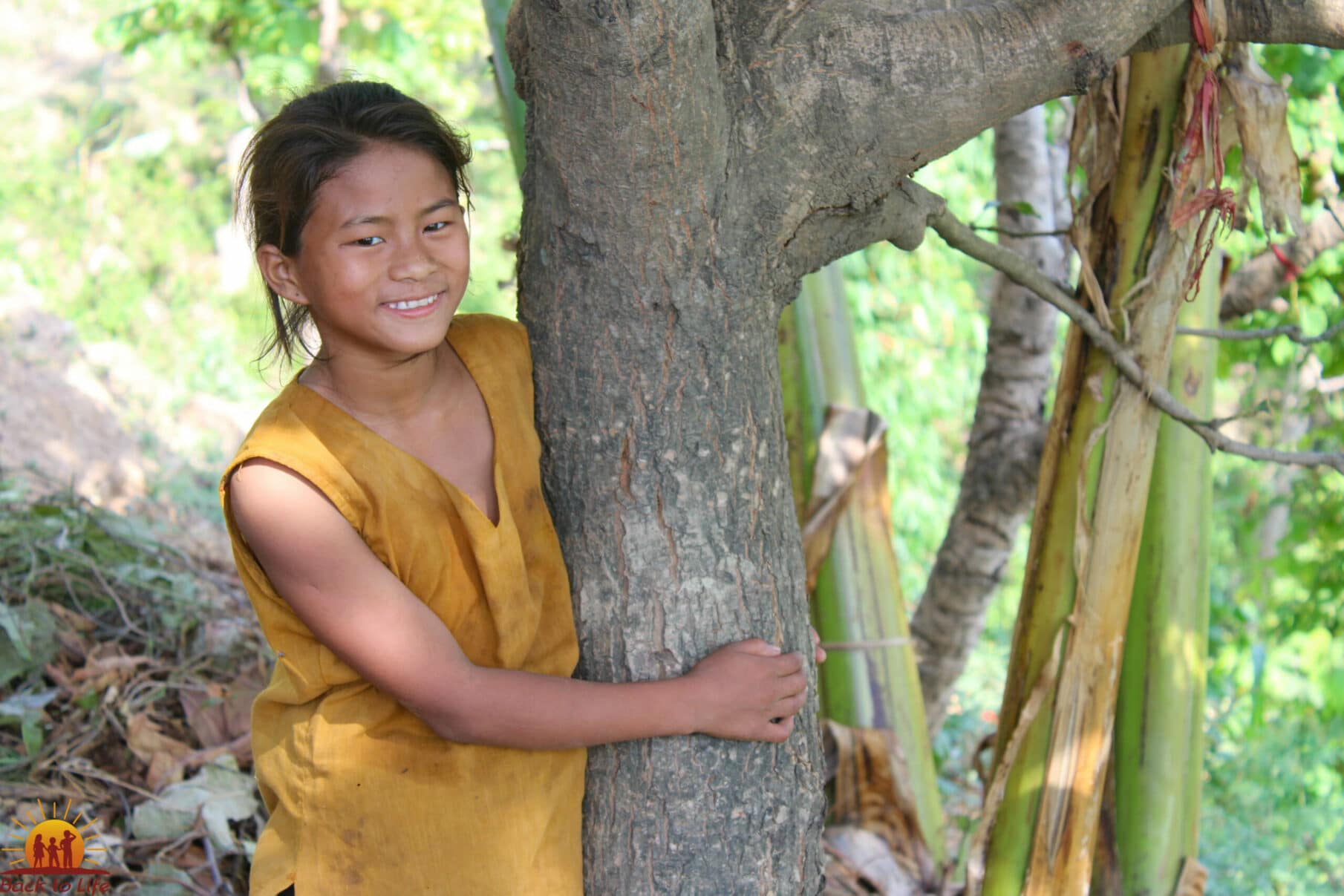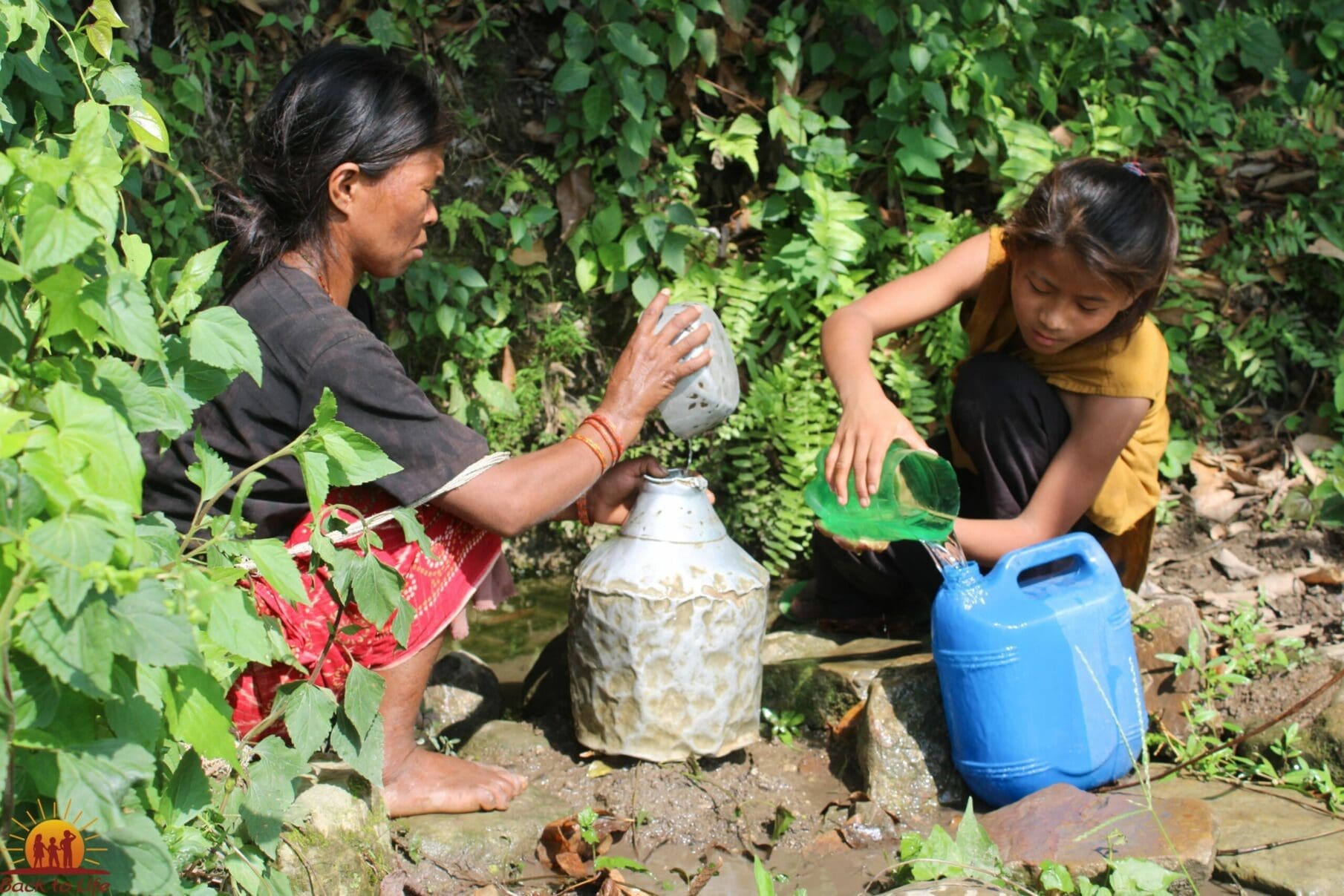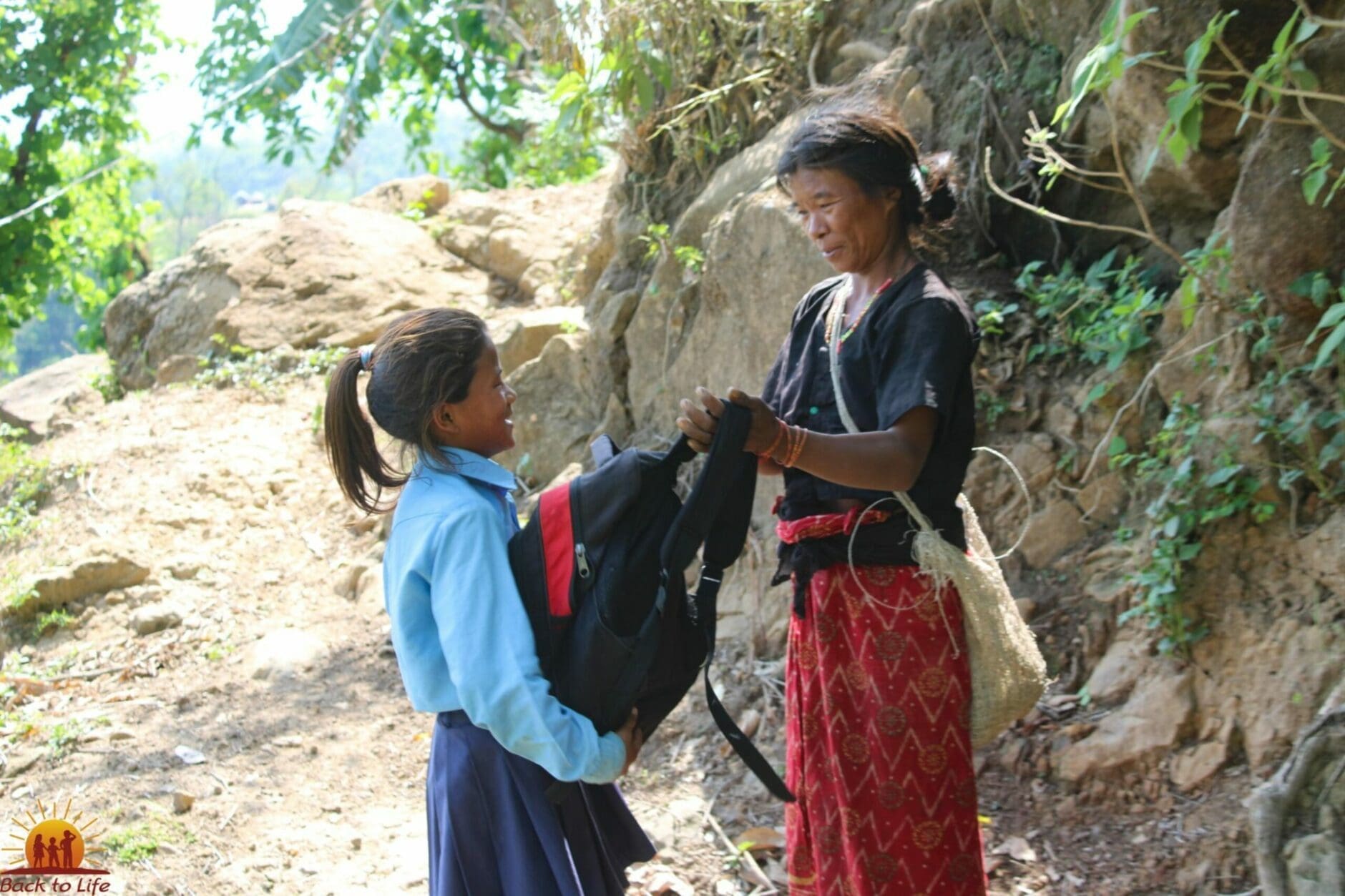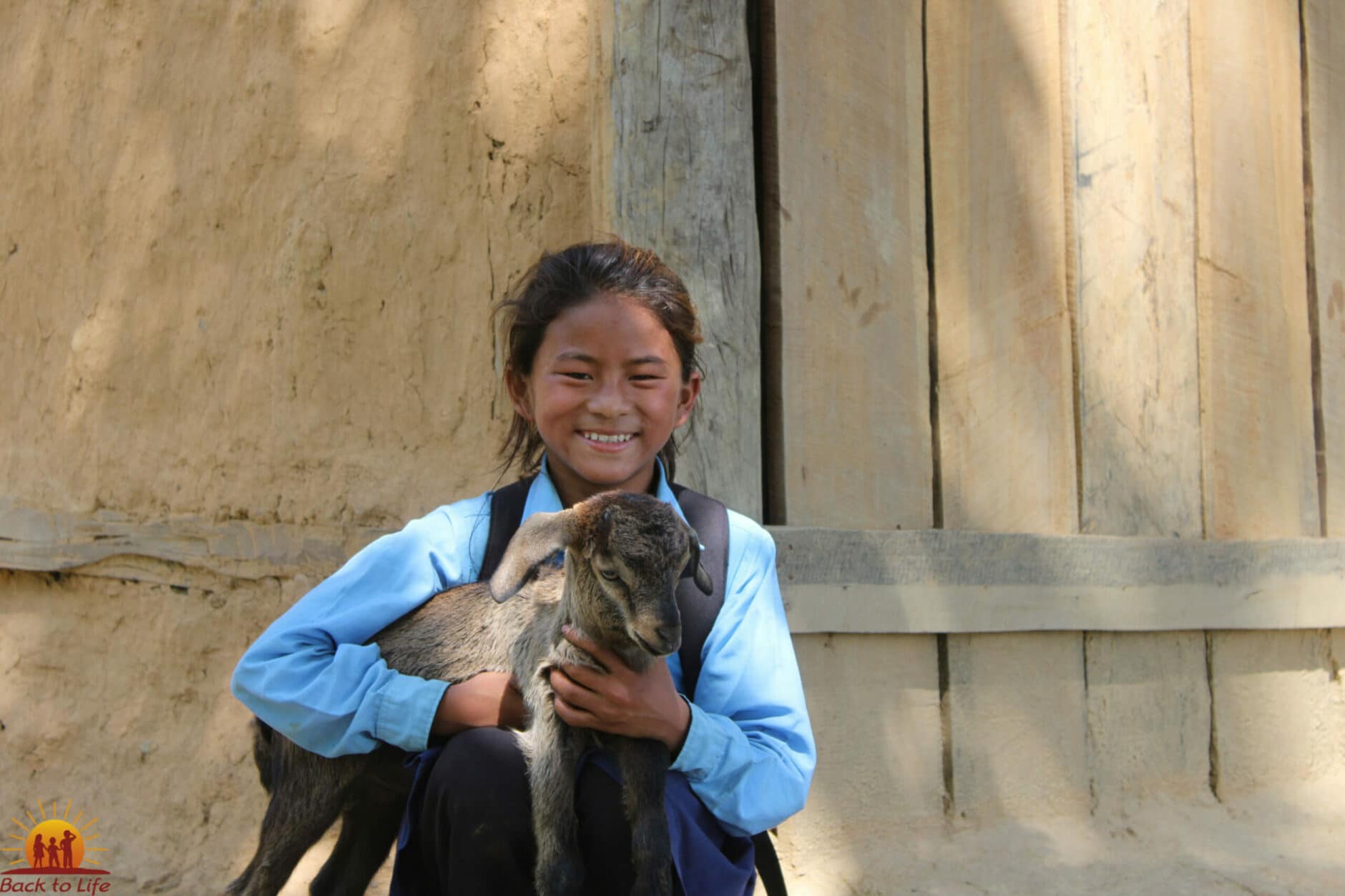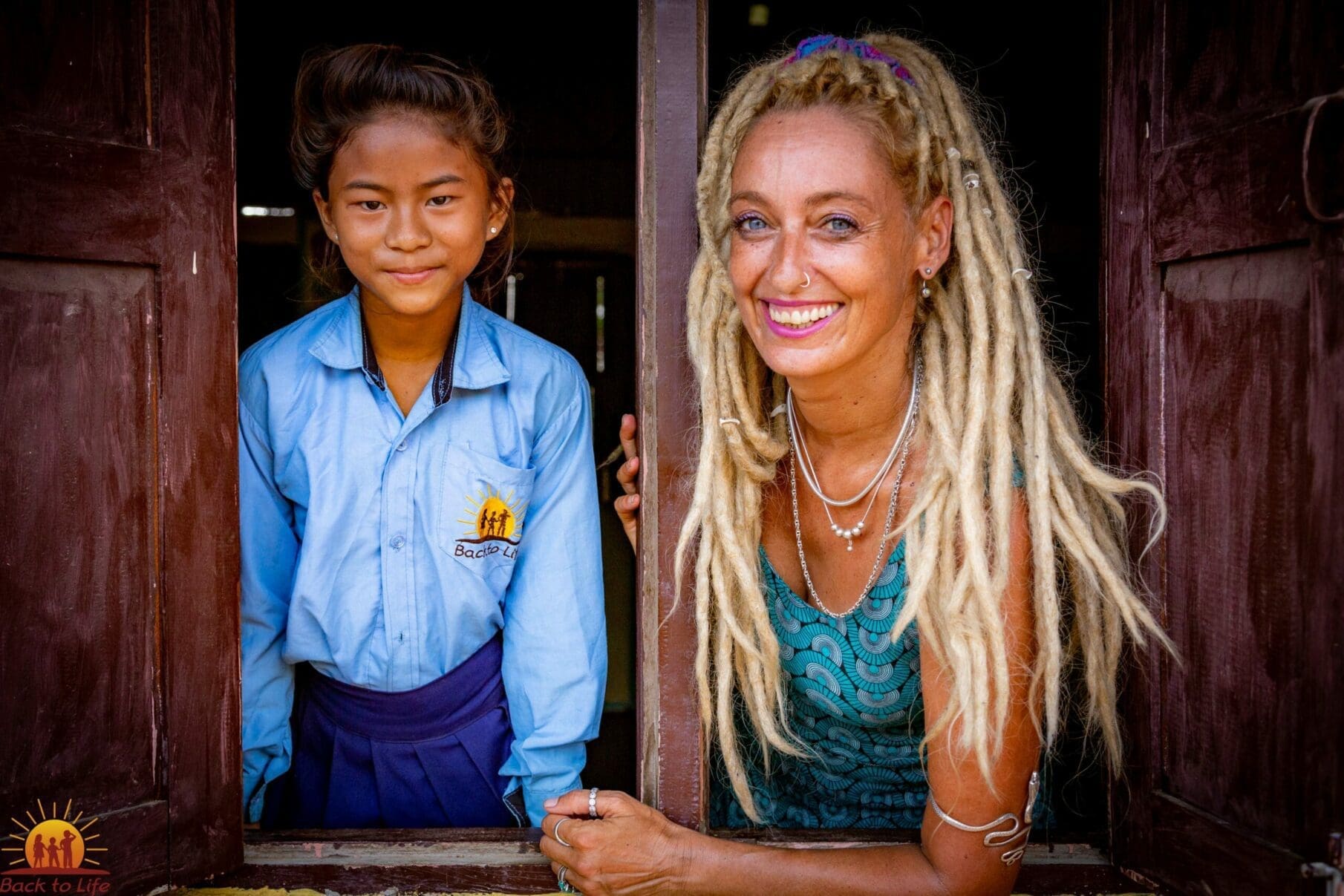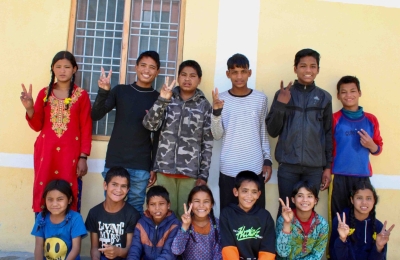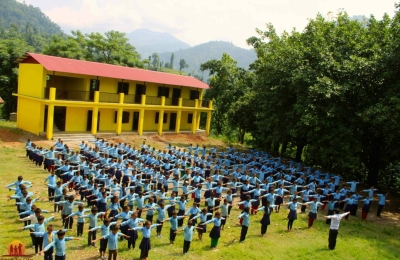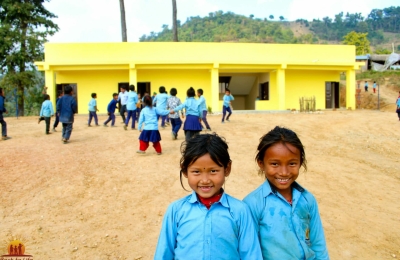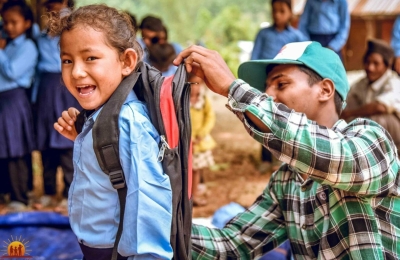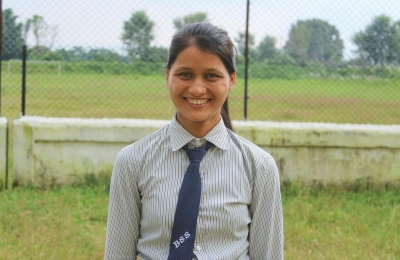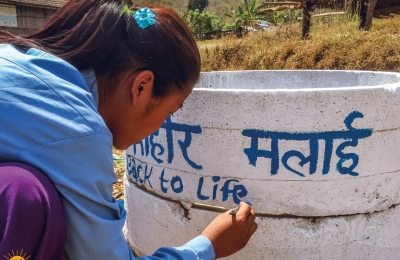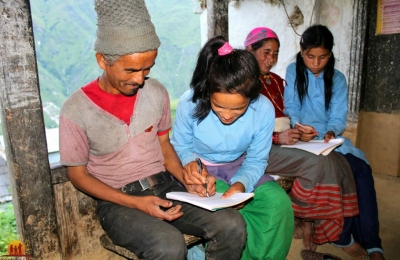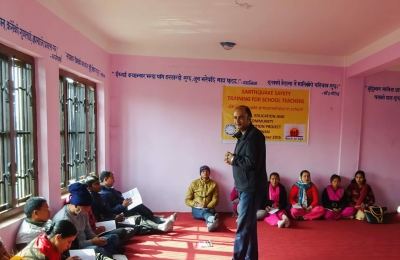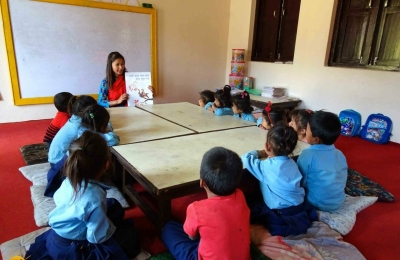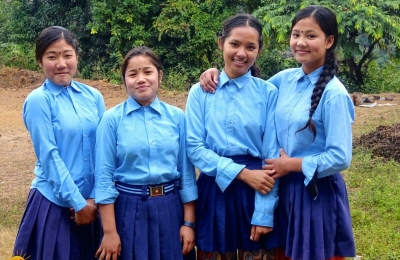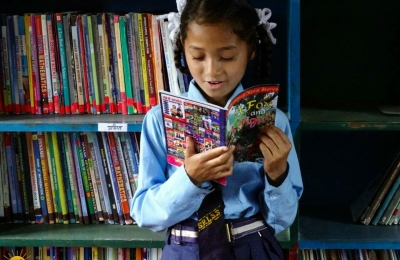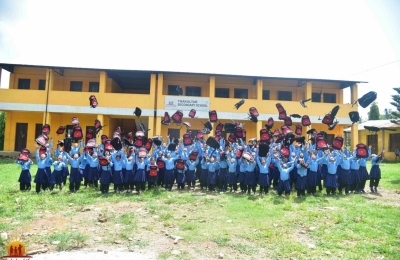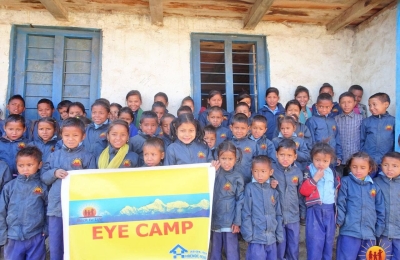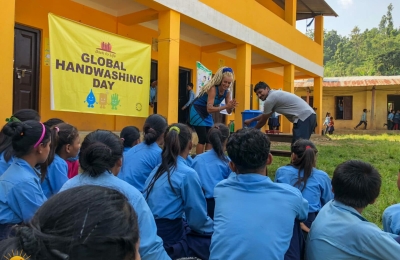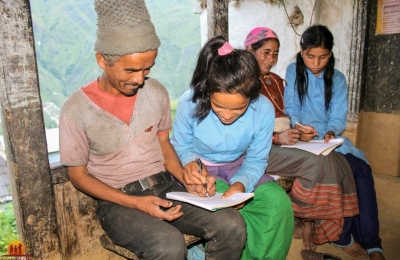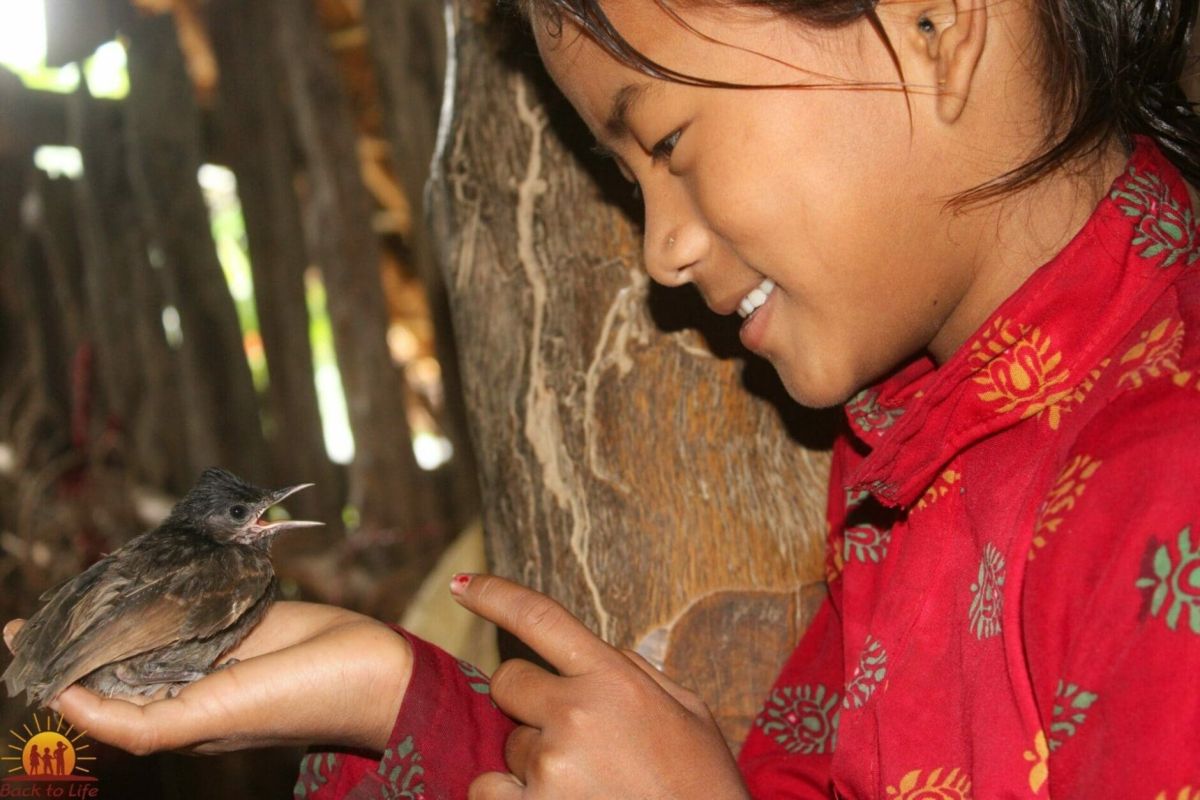
Alimaya is 11 years old and lives with her parents and two siblings (eight and 14 years old) in a remote village in the hills north of the well-known Chitwan National Park. Three other siblings are already away from home and are married. Her family belongs to the indigenous Chepang people. The little one is one of our Back to Life sponsored children and has been supported for some time by a committed couple from Germany with whom she regularly exchanges letters. The standard of living in their village is very low, there is no electricity and no running water. The families live in simple, self-made wooden huts. But thanks to Back to Life’s income generation programs and the sponsors’ contribution, a lot has already been improved here. In addition, Back to Life has renovated the school in the village, added 2 school buildings and equipped it with blackboards, tables and benches as well as a library. Alimaya is one of over 100 children who attend the small village school in Dhamili. This year she started the 5th grade.
Instead of childhood, domestic duties await | For Alimaya, the day starts early with dawn at 5 a.m. and in winter at 6 a.m. In Nepal, children and young people are firmly involved in household chores. Alimaya’s job is to feed the chickens and goats and then with their mother to fetch the water they need for the day. The two of them use canisters and empty plastic bottles, which they fill at a natural source and then carry the heavy load home. It takes them about an hour to do this. The simple breakfast consists of rice with a thin lentil soup or sometimes a porridge made from homemade cornmeal. Then Alimaya brushes her teeth and combs her hair. She got her toothbrush from Back to Life as part of the School Health Program. Then she puts on her school uniform, packs her school backpack and walks with her little brother to school, which is not far away. School starts at 10 a.m. Every morning the students and teachers gather in the school yard and sing the national anthem of Nepal together. Then the lessons start. Nepali, English, math, social studies, science and arts are taught.
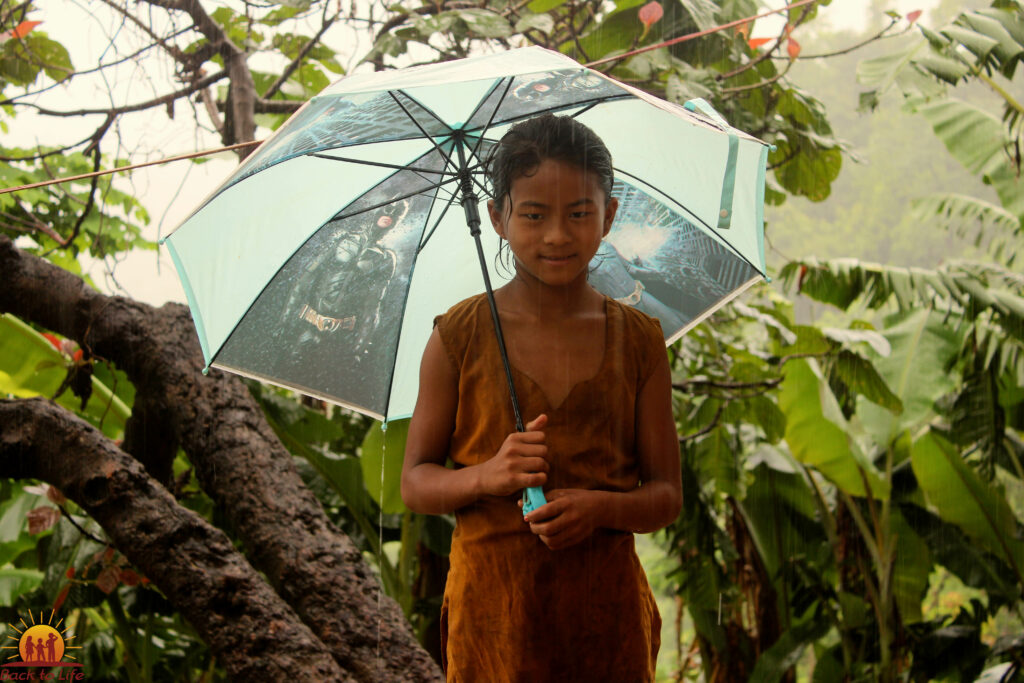
Alimaya forges her future | The hours she spends at school are what she enjoys most, says Alimaya. She enjoys learning and is a very good student. This April she graduated from the top of her class and received an award for it. During the breaks she plays with her classmates. Here she can finally be a child. Alimaya and her friends prefer to play “Lakkudhalai”, where a tower made of seven stones has to be hit by a small ball. The girl is particularly grateful for the delicious and daily changing school lunches that Back to Life gives the children. Every lunchtime, a freshly cooked meal is prepared from local foods. All children are allowed to get help until they are really full. Alimaya says she tastes much better there than at home.
Alimaya’s life outside of school | School closes at 4 p.m. Alimaya runs back home. Their parents, who earn their living as day laborers, have usually not yet returned, they only come home after dark. Meanwhile, Alimaya lets the goats graze on the edge of the village. Back to Life supported the family in setting up a small goat farm. By selling the animals, they can generate additional income. In the evening the mother prepares rice and lentils again. Meat is only available on special holidays. The family has neither television nor radio nor toys for the children. Therefore, after dinner, it goes to bed very soon. Thin mats are rolled out in the wooden hut for sleeping. There is only one room. The whole family sleeps there.
